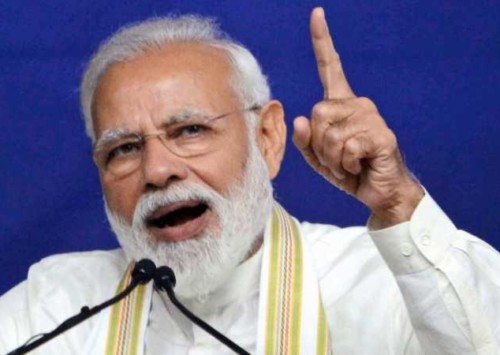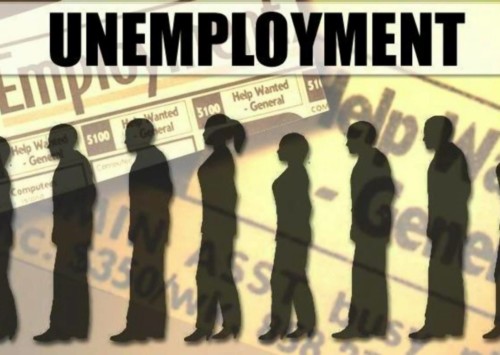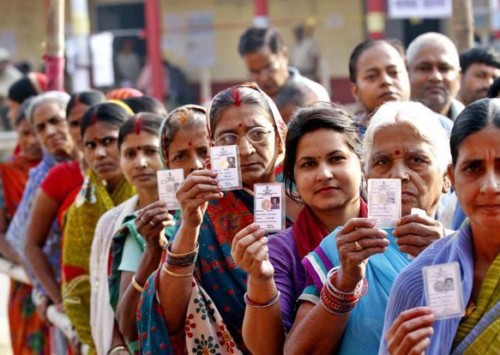BJP’s 2019 report card

Since the elections in May, the government has been busy with ticking items that have been on the party’s agenda for a long time
Starting the year with helping the marginalised and ending it with marginalising a sizeable section of society, here is why India would remember 2019 as a year of the marginalised.
The year 2019 would go down in the history of India and especially of the ruling Bharatiya Janata Party (BJP) as indeed a memorable year with several milestones. The ruling party of India surprised everyone, including its most ardent supporters by winning a second consecutive mandate to rule the country and one with a comfortable majority. Since the elections in May, the government has been busy with ticking items that have been on the party’s agenda for a long time, including getting a nod from the Supreme Court on building the Ram Temple at Ayodhya as well as abrogation of Article 370 of the Indian Constitution to end the special status of Jammu & Kashmir. While most of these decisions went unchallenged at a national level, the party’s last decision of 2019 to rush through the Parliament the controversial Citizenship Amendment Act was met with strong protests on the streets across the whole country, cutting across the usual boundaries of language, religion, caste and social class. This is indeed the toughest challenge that the BJP and indeed Prime Minister Narendra Modi has faced so far since 2014. It has also been condemned overseas and with the students at the helm of the protests, the issue is not going to disappear anytime soon.
Here is a review of the moves made by the BJP in 2019.
February 24: PM Kisan Yojna
The Pradhan Mantri Kisan Samman Nidhi or PM Kisan scheme was launched to provide additional income to small and marginal farmers. Launched barely two months before the elections, it was aimed at answering oppositions’ claims that the BJP was a government of the Big Business and for winning the farmers’ vote. With the party sweeping Lok Sabha elections in most farming states, it seems to have served its purpose. Of late, the scheme has run out of steam and been criticised for the conditions it imposed, where farmers can get benefits only if they produce land records.
February 26: Balakot attack
The 2019 Balakot airstrike conducted by India in the early hours of February 26th was seen as a response to the 14th February Pulwama suicide attack. When Indian warplanes crossed the de facto border in the disputed region of Kashmir, bombs were dropped in the vicinity of the town of Balakot in Khyber Pakhtunkhwa Province of Pakistan.
March 27: Mission Shakti
On March 27, in the midst of election campaign when the government is meant to be on a ‘silent mode’ as per code of conduct of the Election Commission, Prime Minister Narendra Modi announced India had successfully conducted an anti-satellite mission test (ASAT) called “Mission Shakti”. India became the fourth country to acquire the capability of space warfare after the US, Russia and China. This was yet another signal by the BJP towards the Indian voters that it alone could provide a ‘strong’ government.
May 26: A landslide victory for BJP in the Lok Sabha elections.
“We have to move ahead with humility…taking along even our rivals,” words of Prime Minister Narendra Modi when he delivered his victory speech in New Delhi. In 2019, BJP saw a landslide victory as the party won 303 out of the 542 seats, a gain of 21 over the previous total of 282.
July 22: Chandrayaan 2
Chandrayaan 2, India’s second lunar mission was partially successful as the lander Vikram crashed on the moon. Vikram was carrying a rover (Pragyan), which was expected to carry out experiments on the moon’s surface but during last minutes of descent, the communication with Vikram was snapped when it was about 2.1 kms from the surface of the moon. Later, it was revealed that the descent speed of Vikram was much higher than programmed, leading to the crash.
July 30: India bans Triple Talaq
Within 60 days of winning the elections, the Modi 2.0 government began ticking off the items on its party’s manifesto. First to go was the controversial practice that allowed Muslim men to instantaneously divorce their wives, even through an SMS. The bill banning triple talaq, also known as Muslim Women (Protection of Rights on Marriage) Bill, 2019, passed by the Indian Parliament as a law on 30th July 2019, made practice a cognizable and non-bailable offense.
August 5: Article 370
Days after India reinforced its already heavy military and paramilitary presence in Jammu & Kashmir, the Indian Parliament approved a resolution abrogating Article 370 from Jammu and Kashmir and passed a bill to bifurcate the state into two union territories- Ladakh and Jammu and Kashmir. The bill was rushed through both the Houses without much debate or discussion. Home minister Amit Shah said that the controversial provision was responsible for poverty and lack of development. This move by Centre led to heightened tension between India and Pakistan. Restrictions were put in place across Jammu and Kashmir and hundreds of political leaders were detained including the former chief minister Farooq Abdullah, and PDP’s Mehbooba Mufti. Most of the leaders are still interned nearly five months later. Schools and offices were closed, transport crippled and all telephones, mobile services and internet were shut in the state and five months later mobile internet is still not back in large parts of the region, making it the longest internet shutdown in the history of a democratic state.
November 9: Ayodhya Verdict
The Supreme Court of India delivered the much-awaited verdict on the Ram Janmabhoomi-Babri Masjid title suit that paved the way for the construction of Ram Temple in Ayodhya. The Supreme Court also directed the Centre to allot an alternative 5-acre land to the Sunni Waqf Board at a “prominent site” in Ayodhya for the construction of a mosque. The Ayodhya verdict was one of the most anticipated judgements in the history of India as it seeks to bring to an end the dispute that existed for more than a century. The decision was criticised by many but seems to have finally closed one of the most vitriolic debates in the country.
December 11: Citizenship Amendment Act (CAA) 2019:
The Citizenship Amendment Bill (CAB) had originally been drafted by Narendra Modi government in the previous term in 2016. The bill that is now an Act makes it easier for non-Muslim immigrants from a select group of Muslim-majority neighbouring countries to become a citizen of India. Criticised for violating the Constitutional neutrality in terms of religion and seen as a precursor to disenfranchising Indian Muslims, the CAA and its follow up actions, the National Register of Citizens, have been met with protests across the entire nation, paralysing many parts, including the capital New Delhi where non-stop protests are still going on. Students in nearly 100 leading universities all over India have been at the helm of the protests as have several members of the Indian diaspora across the world. In some states, including New Delhi and notably Uttar Pradesh, videos of police brutality have made global headlines and taken the sheen off the Modi 2.0 government as the issue continues to be debated across global media and in various other fora, including the US Congress.












